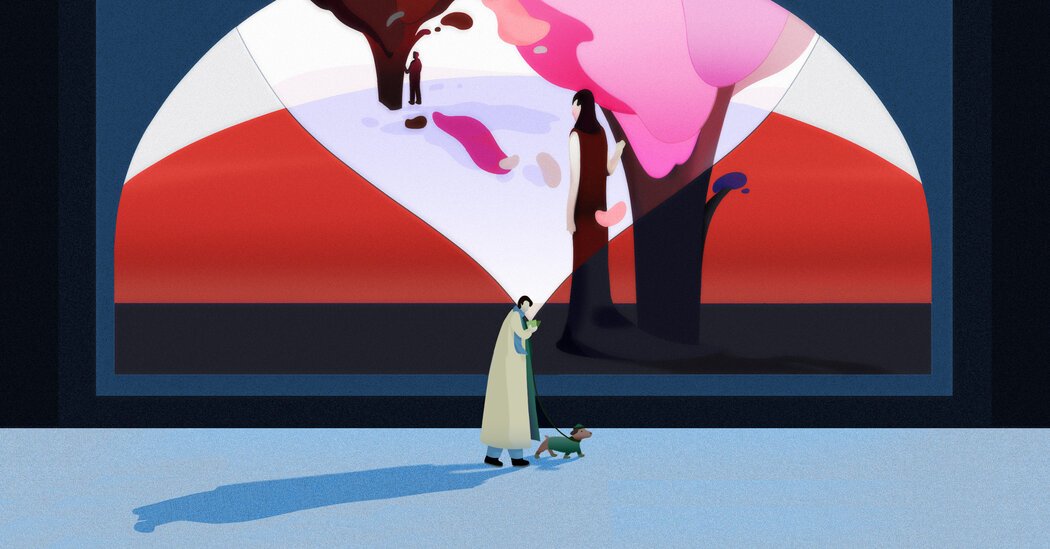
Winter Books to Read When It’s Cold Outside
Frigid storms, heaps of snow and subzero temperatures are not exactly pleasant to live through, but winter weather can make for an irresistible setting for a book. From the cool surface of a frozen lake to the dizzying frenzy of a white-out squall, the dead of winter offers countless evocative and extreme conditions that conjure magic, channel heartbreak and push characters to their limits. The long nights and biting cold also make easy grist for atmosphere: Even in the coziest of reading nooks, the wintry chill can seem to leap from the very best winter books’ pages, making you clutch your mug of tea a little closer.
As we slog through the January doldrums and temperatures in much of the United States dip to polar levels, it can help to embrace the spirit of the season. Here are 10 books that feel ice-cold from the first page.
By Heather Gudenkauf
When the true crime writer Wylie Lark discovers an unconscious child outside her remote cabin in rural Iowa, she becomes embroiled in a mystery worthy of one of her macabre books. But the real terror comes from the elements, as an unrelenting winter storm traps Lark and the child inside. Gudenkauf weaves together three stories across three time periods in this unsettling and sometimes brutal thriller. As the threads converge, you can practically feel the bitter winds lashing against the cabin walls.
Read our review.
By Naomi Novik
“I could see nothing but winter, all around,” Miryem, one of the narrators of Novik’s glorious fantasy novel observes as she is swept into the icy kingdom of the powerful, fae-like Staryk. Billed as a retelling of “Rumpelstiltskin,” this Hugo Award nominee is in fact an uncanny blend of several Eastern European fairy tales, myths and legends, remixed in a style that feels wholly original. In this novel, it isn’t just the weather that can turn cold: “Thrice you shall turn silver to gold for me,” the Staryk king threatens Miryem, “or be changed to ice yourself.”
Read our review.
By Taylor Adams
This thrilling novel opens on a Colorado highway in the middle of a blizzard, and the weather only worsens from there. Adams uses the harsh conditions to sequester his cast of suspicious strangers inside a secluded service station without Wi-Fi or cell service, setting the stage for a classic locked-room mystery. When Darby Thorne, a college student, discovers a possible kidnapping victim in one of the vehicles parked at the rest stop, she has to determine which of her fellow stranded travelers is responsible — all while waiting for the storm to relent and the roads to be cleared.
By James Salter
One of the great American adventure novels, “Solo Faces” follows the daring exploits of Verne Rand, a self-reliant roofer who absconds from California to the Swiss Alps. There, he commits himself to the monumental task of scaling some of the most imposing mountains in the world, including the Eiger, the Grandes Jorasses and the Aiguille du Dru. Salter renders these treacherous ascents in spartan, crystalline prose, finding in the death-defying thrills of mountaineering something like a religious experience. It’s a beautiful book, with writing as icy as the alpine peaks.
Read our review.
By Darcy Coates
A group of tourists, stranded in an abandoned cabin during a snowstorm, wake up after their first bitterly cold night in the woods to find their tour guide butchered, and his severed head impaled on the branch of a tree. That’s the grisly setup for this violent, claustrophobic parlor mystery, which reads like a slasher version of Agatha Christie’s “And Then There Were None.” The body count is high, the murders are inventive and the gore is vivid, but it’s the snow that gets top billing, surrounding the characters on all sides as the tension mounts and the blood continues to pour.
Read our review.
By John Williams
A western concerned with the demise of the American West, “Butcher’s Crossing,” by the cult-favorite author of “Stoner,” tells the story of an ill-fated 1870s buffalo hunt in the Colorado Rockies that is disrupted by the sudden onset of a winter storm. The book’s hero is Will Andrews, an idealistic college student, who gets lured into this folly by an ambitious, fortune-seeking hunter named Miller. The novel’s unromantic naturalism, as well as its grim view of American exceptionalism and frontier hubris, draws frequent comparisons to Cormac McCarthy’s “Blood Meridian,” but the despairing winter chill that pervades the story is distinctly its own.
Read our review.
By Claire Keegan
Keegan’s short, bittersweet book is set in Ireland over the Christmas holidays of 1985, and she makes you feel the season’s every errant gust and snowflake as the protagonist, the unassuming Bill Furlong, makes his rounds delivering the village’s coal each morning. When Furlong discovers the disturbing secrets hidden within the cloistered walls of the local convent — to describe them any further would ruin the mystery — he’s put in an impossible position, left to determine whether he can summon a measure of warmth for his fellow man amid the dreary Irish landscape.
Read our review, and listen to our editors discuss the novel on the Book Review podcast.
By Stephen King
Written in the aftermath of a car accident that left him needing months of physical rehabilitation, King’s underrated “Dreamcatcher” feels very much like the work of a man in pain — the agony manifesting, in typical King fashion, as a ruthless alien parasite that gestates in the lower intestines of its victims before bursting out of their backsides. The book’s heroes, a quartet of lifelong friends from King’s favored town of Derry, contend with the alien invaders in the woods of Maine amid an overwhelming blizzard, which gives the story its suitably chilling backdrop.
By Owen Beattie and John Geiger
In “Frozen in Time,” the Canadian authors Beattie and Geiger delve into the longstanding mystery of the Franklin Expedition, a failed 19th-century voyage in search of the Northwest Passage that left two British ships, the Erebus and the Terror, stranded in the Arctic ice and their entire crews dead. Beattie and Geiger capture the excitement and peril of the explorers’ harrowing journey through polar conditions and, drawing on comprehensive forensic research, offer a compelling explanation of what might have transpired over their final weeks and days (including, in a final act of desperation, cannibalism). It’s a serious historical work, but also a riveting account of a truly extraordinary expedition.
By Dan Simmons
If the true story of the Franklin Expedition isn’t quite exciting enough, you may prefer “The Terror,” Simmons’s fictionalized dramatization that turns the real-life Arctic voyage into a larger-than-life battle with the supernatural. Beattie and Geiger’s research suggests that the crews of the Erebus and the Terror may have suffered from hallucinations after contracting lead poisoning from spoiled tinned provisions. Simmons cleverly folds this fact into his thriller, in which his cast of sailors must fight a bloodthirsty monster while also gradually going insane.
Read our review. And if you’re still hungry for more Franklin Expedition fare, you might also enjoy AMC’s series adaptation of Simmons’s book, or Kaliane Bradley’s romance novel “The Ministry of Time,” in which one of the explorers, Graham Gore, is plucked from the ice and transported to the future.








